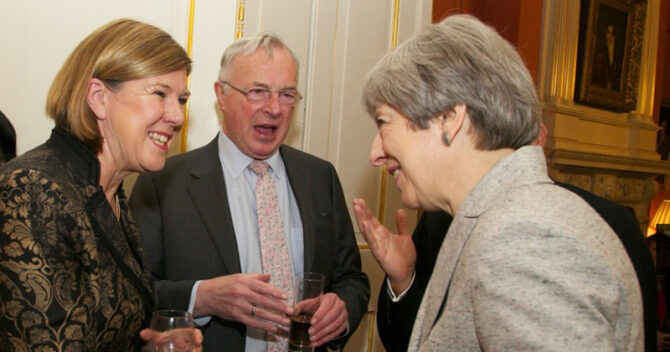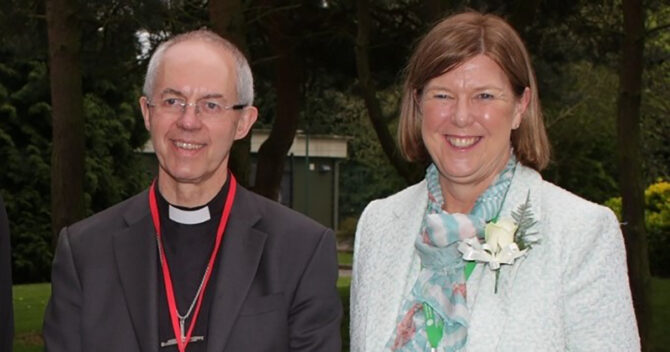Marion Plant, chief executive at North Warwickshire and South Leicestershire College, sits on almost every board going. She tells Jess Staufenberg why linking up the education system is so important
For one moment, I wonder if I’ve accidentally video-called Mrs Claus at the North Pole, rather than Marion Plant, chief executive at North Warwickshire and South Leicestershire College.
She is beaming a huge smile at me from inside a log cabin, with dark pine trees covered in deep snow visible outside the windows. Dismissing the North Pole theory and wondering how I’ve missed the biggest story of 2022 (is there any bigger news than snow news?), Plant corrects me: “I’m in Sweden! I love cross-country skiing.”
She exudes energy, but presumably much like Mrs Claus, Plant is currently taking a break from a very intensive period. It turns out she’s not had a proper holiday in a couple of years, and I’m not surprised: the breadth of her roles is extraordinary.
Aside from leading her college, Plant is also chief executive of the Midland Academies Trust, deputy chair at WorldSkills UK, a board member of both Coventry and Warwickshire LEP and Leicester and Leicestershire LEP, a board member of Coventry University and a trustee of the Church of England’s education board.
Meanwhile, she has set up a technology institute and even sat on the Department for Education’s board for three years. According to her Association of Colleges’ profile page, the FE commissioner once said hers was “the fastest college in and out of intervention”.

It may sound undoable, but it makes sense given Plant’s biggest motivation: deep-level collaboration across the education system. Time and again, she has taken on roles in order to knit different sectors closer together. This was a key reason for joining the DfE board, she says: “It was a fascinating insight. It showed me the connection between developing policy, and then going back to college and implementing it.
“Sometimes you can feel cross with the DfE and ESFA, and done unto by them, but I saw the other side. I think it helped me understand that many people really were trying to do their best for FE, and they were trying to juggle all these competing pressures and demands.” It didn’t stop her banging on about underfunding “like a stuck needle”, she adds.
Taking responsibility for bringing people together is in Plant’s hardwiring. She’s the oldest of a big family of five children, and unusually, she and two of her siblings were adopted, with the family growing up together in Africa. Her parents first took her to Sierra Leone when she was two, and then Zambia when she was seven (her father was an engineering academic and her mother a teacher). Plant remembers sailing over on a boat, and returning to the UK every two years.
“For each of the first two visits, we took another child back,” she smiles. “I’ve always been very open about being adopted, it’s always something I’ve valued. My parents always said they had the perfect family, and I wouldn’t want it any other way.”
The childhood was “full of freedom”, with no television and almost constantly outdoors, attending local schools and learning African history – but there was political upheaval too. Freedom fighters from neighbouring Zimbabwe, which was gaining independence, would pass through Zambia, says Plant. “I remember a military plane hitting the top of the tree in our garden,” she reveals.
“At the time I chose to take on a lot of responsibility for my siblings, and that’s continued.” With her parents having passed away, Plant says she is now “the glue that holds the family together”.
The experience of a big, loving family seems reflected in Plant’s approach to leadership. She quickly shot up the ranks in England, having trained as a nurse and midwife, and discovering a love for lecturing healthcare students (despite a nerve-wracking first-ever lesson on contraception) at Birmingham’s Handsworth College – now South & City College Birmingham.

She was soon acting deputy principal at North Birmingham College, and moved over to join North Warwickshire & Hinckley College as vice principal. By 2003 she was principal, and has “loved it from that day to this”.
When I ask what she’s proudest of, she describes a family scene.
“It’s the ethos of my college. Every Christmas, we open on Christmas day, and we do Christmas brunch for students, with crackers and presents.” She’s attended almost every brunch, usually with about 20 students. “There were students who might not have had a happy Christmas without it.”
A strong emphasis on community seems particularly important across a college with six separate campuses (the college merged with South Leicestershire College in 2016). Plant herself is motivated by her Christian faith, and she says there is a “strong chaplaincy” in the college which contributes to the pastoral team. She’s recently appointed another chaplain for the Midland Academies Trust: however, she is very firm about not proselytising to anyone.
“I live my Christian faith, but I don’t talk about it. A college is a very diverse place, and all people need to feel valued equally. It’s not Marion the Christian principal, it’s Marion the person, and behind that person is the fabric of what I believe.”

It’s well put. Plant continues that for her, good leadership is less about grand ideals than about truly being oneself. “I’m not a theoretical leader and I hate using clichés – but you have got to be an authentic leader. I wouldn’t expect anyone to do anything I wouldn’t do.”
She laughs, adding: “I find administration boring, to be honest – luckily I have a fantastic PA. I’m hands on and visible, and I’m honest when I’m finding things challenging too.”
Believing in her own authentic voice helped Plant get through FE commissioner intervention in 2018, when the college found itself in a tight financial position following the costly merger. “Some colleges get a lot of help with college costs, but we had no help at all,” she notes. “I’m not grumpy about it! But there were several strains on our finances.” The college had delivered £1 million of unfunded teaching in 2017-18, the finance director said at the time.
You have to hold your nerve
“I won’t pretend that being in intervention is easy, it’s the reputation and the noise around that,” continues Plant. “You have to hold your nerve. It took me a while to trust my own judgment – that someone else out there doesn’t have the answer. You have to remain confident. Otherwise it could topple you.” By cutting back but “without mass redundancies”, Plant quickly got the college out of intervention.
Since then, she has been able to focus on the three major cross-sector projects close to her heart. The first is the Mira Technology Institute focused on the automotive industry, including electric vehicles. Plant notes with a smile this project is really the original Institute of Technology, before the government announced its own.
Unlike many IoTs, however, this has a spanking new physical building, with students from both the college and schools able to work with industry experts to get qualifications “from level 2 up to a PhD”. She thought up the idea with the chief executive of the Motor Industry Research Association, the project’s industry partner, and she pulled in three university partners too: Leicester, Loughborough and Coventry.

Here, Plant’s bridge-building abilities become clear. She sits on the board at Coventry University, and it was the Leicester and Leicestershire Enterprise Partnership that provided the £9.5 million grant for the Institute to open in 2018. “Being on the LEP board means I get lots of intelligence about the skills sectors!”
But she isn’t done yet. In 2010 the college opened the Midland Academies Trust, sponsoring its four schools. “I persuaded our governors this was the right thing to do,” says Plant, who was concerned by the number of 16-year-olds arriving unprepared for college life. “It was so obvious when I was on the DfE board that education is in so many different pockets.”
Two studio schools under the trust had to be closed in 2015 due to under-recruiting pupils – a national problem for the vocationally focused schools – but the four academies continue, with two ‘good’ and two ‘requires improvement’ Ofsted outcomes. For Plant, it’s yet another opportunity to bring sectors together to better serve learners, including allowing more students to take part in WorldSkills UK, the international competition she adores and where she is deputy chair.
“I’m not sure how in vogue colleges are as academy sponsors ̶ it’s more universities,” she muses. “But if it offers opportunities for young people and it’s right for the area, it’s got to be a good thing.” She adds that her “vision” of a knitted-up curriculum across schools and colleges is not fulfilled – “just yet”.
Plant’s triumph appears to be as a deeply embedded local leader. Just as with her extended family, she holds multiple links and connections across areas and sectors – a sort of complex human bridge. “Collaboration around education on all fronts is the way forward,” she says firmly. “Not competition.”
And with that, I let her get back to a well-deserved break in the snow.








